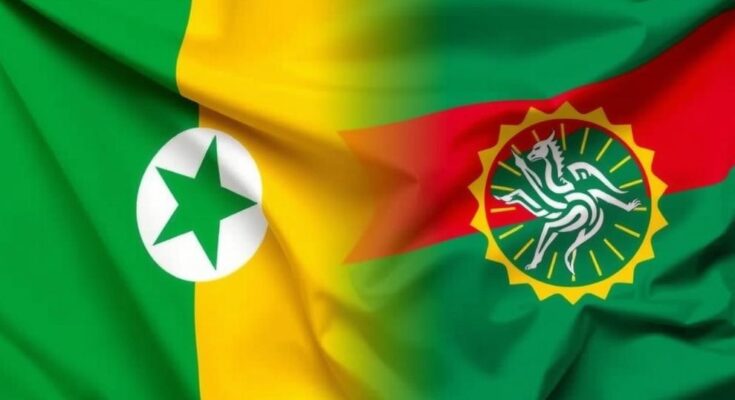The opposition party in Somaliland supports the partnership with Ethiopia, emphasizing mutual benefits and encouraging transparency regarding a recent agreement. While urging the government to disclose the details of the MoU, they express confidence in the ongoing collaboration between the two regions, viewing it as advantageous despite Somalia’s concerns over Ethiopia’s influence.
Somaliland’s opposition party has expressed strong support for the ongoing relationship between Somaliland and Ethiopia, recognizing the historical collaboration for mutual benefits despite the surrounding challenges in the Horn of Africa. Mohamed Abdullahi Omar, a representative from the Waddani party, emphasized that they do not oppose the newly signed agreement between Somaliland and Ethiopia, highlighting Ethiopia’s role as a genuine partner. However, Omar raised concerns over the lack of transparency regarding the memorandum of understanding (MoU) between the governments, criticizing President Musa Bihi Abdi’s administration for not disclosing the details to opposition members and the public as per legal requirements. “Unfortunately, the current Somaliland administration has not shared the details of the MoU with the opposition nor the parliament, yet we are the majority in the parliament,” he stated, calling for the release of this information so that they may evaluate it in light of Somaliland’s long-term interests and the principles of cordial relations with neighboring states. Despite the absence of public details about the MoU, Omar expressed confidence in the stability and consistency of the partnership between Somaliland and Ethiopia, suggesting that there is merit in Somaliland forming agreements with its neighbors. “Our party is confident that Ethiopia is genuine in its relationship with Somaliland, and we look forward to further cooperation in many areas, including trade, security, and energy,” Omar remarked. He further noted that Somaliland has historically engaged in bilateral agreements with other countries, citing the United Arab Emirates as an example. Omar concluded by asserting that the use of the Berbera port by Ethiopia would be beneficial for Somaliland and that Somalia should prioritize its internal issues, including security threats posed by Al-Shabaab, rather than focusing on the Ethiopian agreement. “Somalia has got a lot to focus on now including its internal problems such as lawlessness and eliminating terrorist groups that are causing chaos and mayhem,” he stated. He also described Ethiopia’s desire for port access as a legitimate interest, emphasizing the regional commercial vision for Berbera port that is intended to facilitate broader ties within the region.
The context of this article revolves around the complex political relations within the Horn of Africa, specifically focusing on Somaliland’s working relationship with Ethiopia. Somaliland has emerged as a self-declared independent state since its separation from Somalia in 1991, yet it remains internationally unrecognized. Amidst its struggles for recognition and stability, Somaliland has developed ties with neighboring Ethiopia as a strategic ally. The discussion highlights the importance of transparency and cooperation in regional partnerships while addressing the implications of foreign agreements amidst internal and external pressures.
In summary, the opposition party in Somaliland articulates firm support for the partnership with Ethiopia while expressing the need for transparency regarding the agreements made. Mohamed Abdullahi Omar’s statements reflect proactive engagement in regional diplomacy and highlight the importance of maintaining stability and cooperation with neighboring states. Despite Somalia’s objections to Ethiopian influence in the region, the Waddani party emphasizes the potential advantages of this relationship for Somaliland’s development and security.
Original Source: www.garoweonline.com




